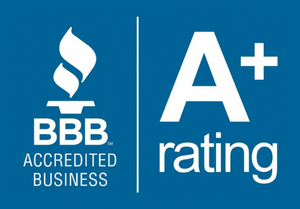We will look at the documents that any criminal investigator has prepared or provided in their case and make a determination as to the extent of their investigation and if they have utilized proper and available resources in investigating and documenting your case; Interviews, affidavits, subpoenas, research, leads, evidence, and other methods that may or may not have been utilized during the investigation.
A criminal case is a court proceeding in which the defendant stands trial for an illegal act according to state or federal law. Criminal cases usually begin after the person is arrested and told of their charges, typically at an indictment hearing. The accused is always presumed innocent until the state’s prosecutor proves guilt beyond a reasonable doubt. Criminal cases are usually tried by a judge with a jury present, and may end in sentences handed down under criminal law.
Those accused of a crime could receive not only jail time, but also fines. All criminal courts have similar procedures that they follow once an individual has been charged with a crime: the process begins with arraignment. Here, the accused appears in court where the charges are read and formally recorded by a judge. A preliminary hearing is held in order for the district attorney to display the evidence that they have gathered which led to charging the defendant for committing the crime. After this, there is a pretrial conference.
This court hearing is to resolve any outstanding issues before going into a trial. A plea hearing is held when the defendant enters a plea of guilty, or not guilty. The prosecutor offers some type of agreement to the defendant at this stage. If there is no agreement, then it will go to trial where evidence is presented and beyond reasonable doubt determinations are made by either judge or jury. Next, there is sentencing. Sentencing decisions refer to the penalties a court hands down for crimes that have been proven to have been committed.
Finally, there is an appeal: this is when a defendant may present their case in order to have their original sentence revoked. Appeals can happen at any time after the initial sentence has been handed down. The difference between criminal and civil justice systems is that in criminal cases, it’s the government rather than another business or organization that takes action against an individual person.
Civil cases generally involve disputes between two private citizens, or between businesses. The laws, penalties, and burden of proof in criminal cases vs. civil lawsuits are all examples of this distinction. In certain criminal circumstances, imprisonment may be a potential punishment; however, civil litigation does not impose jail time on the defendant.
If a criminal case exists, sometimes a civil lawsuit will follow. This happens usually in situations such as wrongful death or police misconduct. As previously mentioned, the amount of evidence required differs between criminal cases and civil cases: this is what’s known as the burden of proof. The higher the burden of proof, the more responsibility there is to provide concrete evidence for support. So for example, in criminal cases this becomes much harder for prosecutors because they have to prove beyond all doubt that defendants are guilty.
In a civil case, all that is required to find someone liable is a preponderance of evidence, which is defined as more than half of the evidence pointing to one side and less than half pointing to the other. The majority of defenses available in criminal cases are based on the crime’s classification. Criminal matters are generally classified according to the severity of the offense in most jurisdictions. Citations and minor infractions are typically the least harsh, resulting in fines and/or brief jail time.
As opposed to crimes against property, which are less severe, felony crimes against a person usually result in a longer sentence spent in prison. If you find yourself accused of such a crime, know that self-defense is commonly used as a legal defense. Aside from intoxication, some other criminal defenses one could use are: duress, necessity, mistake, insanity, entrapment, and/or a strong alibi.
To reiterate what was said before: every accused person is presumed innocent until the accuser proves otherwise beyond a reasonable doubt in court. If the defendant has a valid excuse for their actions (i.e. self-defense), then they may be able to avoid being convicted of a crime altogether.
Defending yourself against any criminal accusations is a complicated and difficult process, which is why you need an attorney and Texas private investigator who specializes in criminal defense. This type of lawyer and private investigator will know what specific defenses are available to you, based on the charges and evidence against you. In addition, they can educate you about your rights under state law and represent you during every stage of the court case. If you’re facing any type of criminal charges, it’s important to seek out legal help as soon as possible.
There are a few key things to keep in mind if you find yourself caught up in the criminal justice system. First and foremost, you are presumed innocent until proven guilty. This means that the burden of proof is on the prosecutor, and not on you, to prove that you are guilty of the crime. Second, you have the right to an attorney, and it is in your best interest to have one if you are facing any type of criminal charges. For a stronger chance of winning, hire a private investigator like Dave Johnson.
Third, there are a variety of defenses available to you, depending on the specific circumstances of your case. By working with a criminal defense attorney and private investigator, you can determine which defenses will be most effective in your case. Finally, remember that every stage of the court process is important, and you need to have an experienced private investigator and lawyer by your side to protect your rights and interests.

